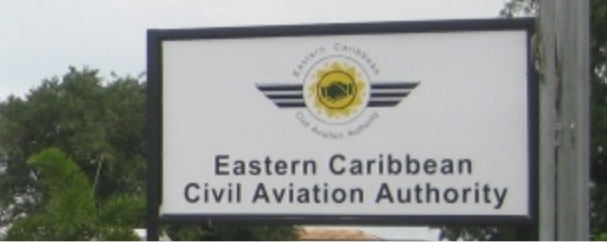The Eastern Caribbean Civil Aviation Authority (ECCAA) has lost the Category 1 status accorded it by the US Federal Aviation Authority (FAA), as a result of its failure to make certain adjustments.
This means that while existing flights to US destinations from the Organisation of Eastern Caribbean States can continue, no new flights can be added, unless category 1 status is retained.
Carriers from category 1 countries are permitted to operate into the US and/or code share with US air carriers, in accordance with the US Department of Transportation authorisations.
Carriers from category 2 countries that operate into the United States and/or code share with US air carriers have such services limited to the levels that existed at the time of the assessment.
“This has nothing to do with the safety and security of our airports and the rating we get from the Transport and Safety Administration. This doesn’t affect planes coming to us,” Prime Minister Ralph Gonsalves said on the development.
Gonsalves noted that St. Vincent and the Grenadines was in the leadership in achieving ECCAA’s category 1 status in 2007.
“I, in fact, went to Antigua to receive the instruments from the United States government. I just want to say that this is in relation to the Eastern Caribbean Civil Aviation Authority oversight,” he said on Star FM, on Monday.
Gonsalves explained how the change in status came about.
“Now, when FAA did their assessment, they identified what they considered to be 14 deficiencies; 11 of them are corrected. The three which are yet to be corrected involve the question of something called article 83 BIS.
“You sign on to that, but you need to put it inside of an institutional legal framework in a domestic legislation. That has not happened.”
A second issue was that there are some regulations that need to be gazetted in several countries.
And third, which Gonsalves said, for the US authorities, was a big one, — under the existing Eastern Caribbean Civil Aviation Act under which ECCAA obtained category 1, the minister of civil aviation in the respective countries may make regulations.
“The (FAA) want the director general of ECCAA to be the one to make the regulations, not the minister. So, an amendment has to be made to the law in that regard.
“So they are not major issues in respect of — which things cannot be corrected and the letter from the FAA… at the end of the letter from Rick Domingo, the executive director of flight standard service, FAA: ‘The FAA looks forward to maintaining an open dialogue with ECCAA as you work through the process of re-establishing an ICAO compliant safety oversight system for the OECS members.’”
Gonsalves said that FAA was, in essence, saying, “’Look, sort out these matters and let us talk.’
“So these are really administrative legislative matters,” he said.
He said he had written in February indicating to the FAA that each Parliament had to pass a law to transfer the authority to make regulations from the minister to the ECCAA director.
“And I told him that you just couldn’t get it done within the time frame. And of course, COVID came on and that made it even more challenging.
“You see it appears as though some of the persons who review for FAA don’t quite follow that there are six independent states; we are not a unitary state and we are not a federation. So we have to go to each parliament to pass that particular piece of legislation, that amendment and to also do the institutional arrangements in law for the article 83 BIS,” he said.
The prime minister further said that ECCAA countries also had to gazette some regulations and guidelines that are available.
“Well, those gazetting issues are fairly straightforward,” he said adding that the changing of the law is the one that would take most time.
“But it’s really paperwork and legislative time. That’s what that’s about,” he said.
He noted that Barbados, which has the greatest airlift in the Eastern Caribbean and they are category 2.






